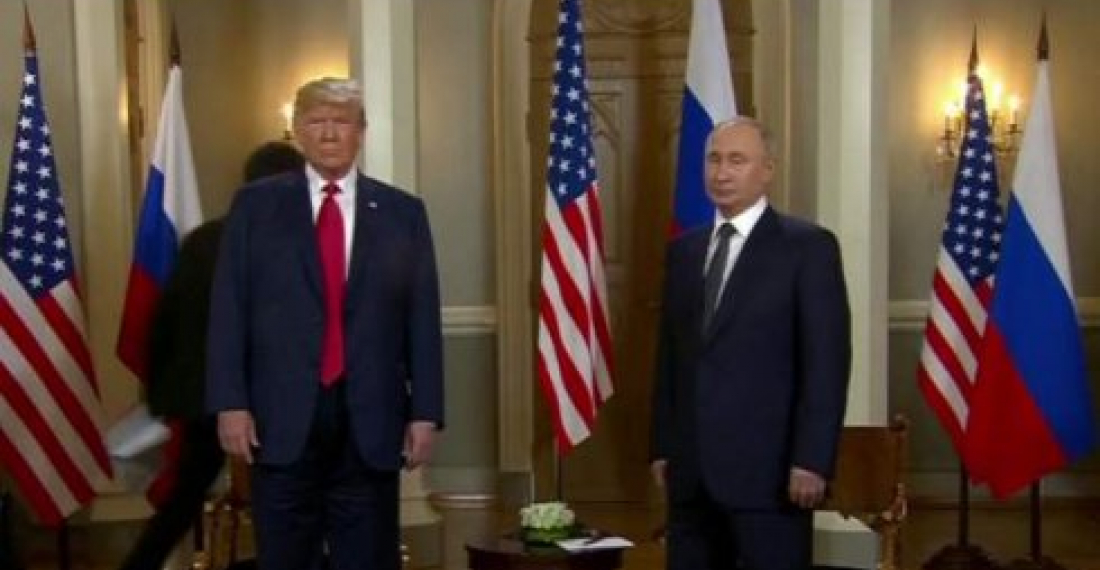There were astonishing statements at a Trump-Putin press conference in Helsinki on Monday - a sign of a very extraordinary relationship that takes international relations into uncharted waters
Russian President Vladimir Putin and US President Donald Trump met in Helsinki on Monday (16 July). The two leaders, looking sombre, shook hands before starting a two hour tete-a-tete meeting, which was followed by an extended session with senior officials.
There then followed a press conference, which will be recorded in history as one of the most bizarre events in contemporary global politics. President Donald Trump started by saying that the previous four hours had changed the state of US-Russia relations, which until then had been at the worst possible level, and to start a new level of dialogue and co-operation.
Whilst in his prepared speech Trump praised the long history of diplomatic contacts between Russia and the US, and the American diplomatic tradition to engage, in the question and answer session Trump failed to blame Russia for the bad state of releations, and at one point indicated that he believed the Russian leader more than he believed the US security agencies. For his part President Putin described the talks as "very successful and useful". He said that the talks have not been able to clear all the backlog but the meeting had achieved much progress. Asked by journalists whether Trump had indicated that he was ready to recognise the Russian annexation of Crimea, Putin said that Trump had reiterated his continued support for the position that Crimea was part of Ukraine
source: commonspace.eu with agencies






